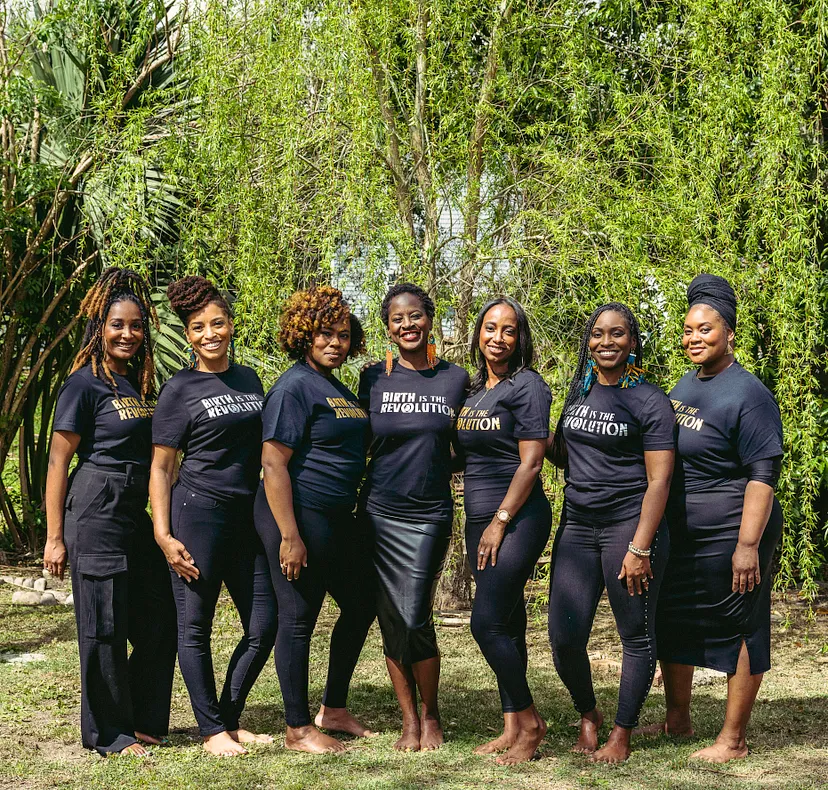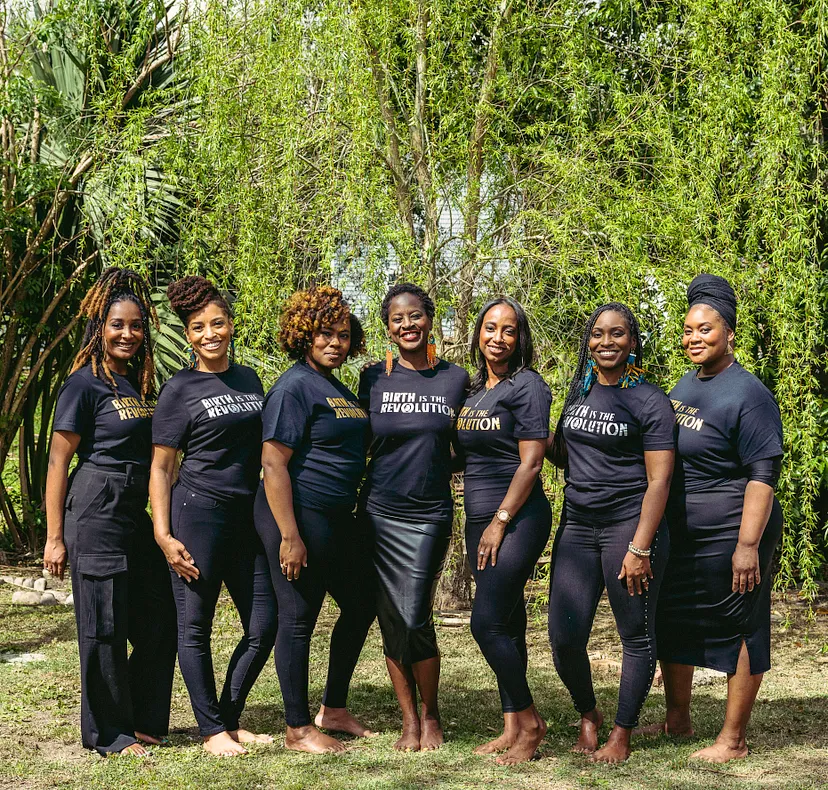
Image via SistaMidwife Productions
A little over ten years ago, Nicole Deggins was building a career as a reproductive medical worker.
“Primarily, I worked as a labor and delivery nurse in many places — from California to New Hampshire, from rural hospitals to big inner city hospitals,” she explains. “Unfortunately, no matter where I was in the country, I began to see that birth was terrible for women everywhere. “
The concept of a doula — a woman employed to guide and support a pregnant person during labor — wasn’t nearly as well-known ten years ago as they are today. But doulas have become essential in the overall quality of the medical outcome of births for mothers and babies. In some states, as many as 15% of women now use doulas to support their delivery. As a result, there is over a 50% decrease in cesarean sections and a 50% decrease in postpartum depression. The improvement of women and babies through doulas is so profound that many states have already adopted insurance policies to cover doula expenses.
Deggins, whose company SistaMidwife Productions has been a leader at the forefront of national doula for over a decade, sees the role of doulas not just as a medical necessity for Black women but also as a spiritual one. Deggins states,
“One of the things that I always say is that ‘birth is the revolution.’ If we revolt — that is, to rise against the status quo and shift the way we think about pregnancy, conception, and birth — we can change the vibration of our communities.”
Dive into this fascinating and vital piece on digitalundivided’s Breakthrough NOLA program graduate, and learn how doula training is creating bonds — and lives — in the highest light possible:
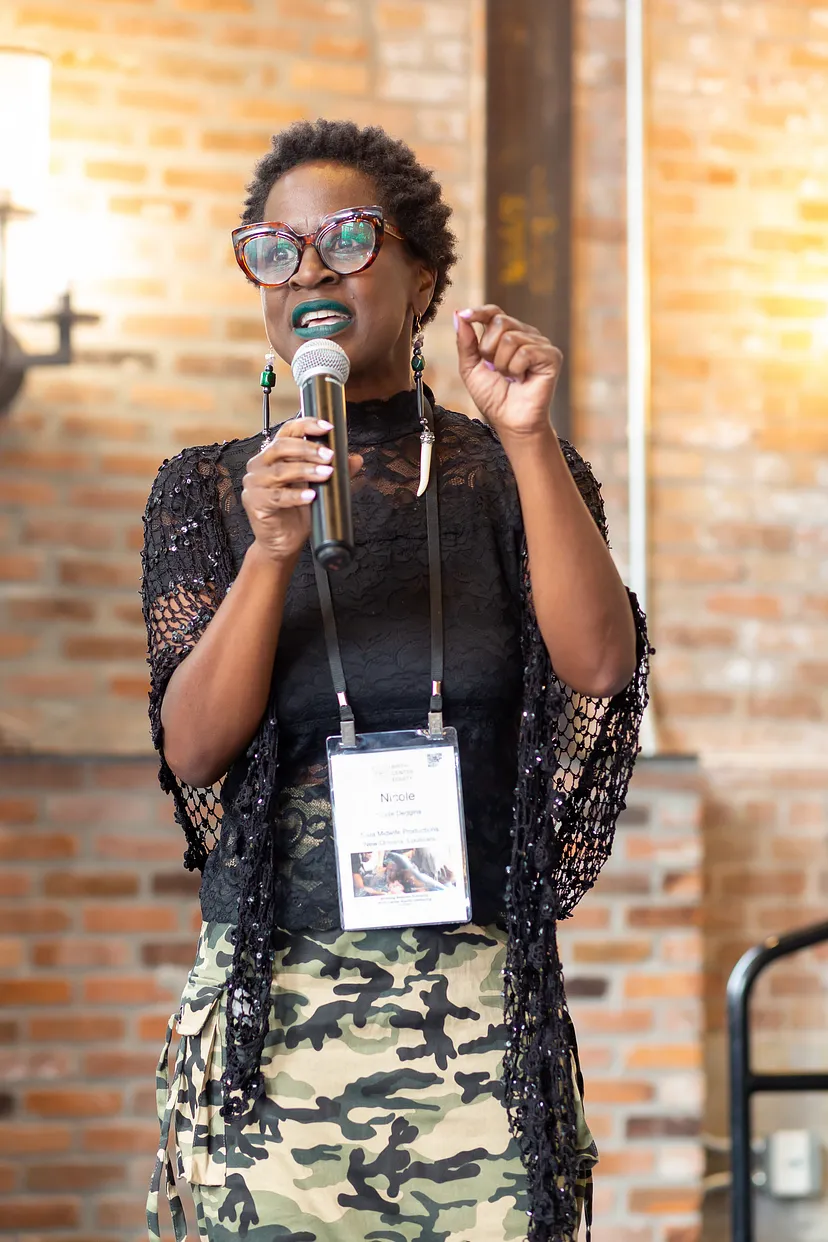
Image via SistaMidwife Productions
digitalundivided: Why are doula services critical, especially for Black pregnant people?
Nicole Deggins, SistaMidwife Productions: Doulas are essential because the research shows that doulas improve birth outcomes. They decrease the likelihood of a cesarean section and other unnecessary interventions. There are lots of morbidity and mortality that are attached to increased interventions and cesarean sections. Simply having a doula who can decrease interventions and decrease cesarean sections, in and of itself, can improve outcomes.
That’s just the tip of the iceberg. They also improve overall satisfaction with the family’s birth. They become the go-between between the families and the hospitals. A doula will help a family pinpoint their questions, needs, and desires and help them navigate and interpret the conversations in that system to help improve birth outcomes.
Your doula is also the interpreter. They can help the family understand what the doctor said, what they meant, what the midwife said, what did they mean. What did I hear in this hospital childbirth education class? What questions should I be asking? What are my options?
digitalundivided: What is your founder’s origin story in starting Sista Midwife Productions?
Nicole Deggins, SistaMidwife Productions: People were having poor experiences. They weren’t feeling heard. Even families who felt like they were educated…I witnessed them show up to the hospitals but got hoodwinked and bamboozled for what they wanted. And I was like, “This is not okay. Somehow, we have to change this.”
Initially, I just started a blog and began blogging about birth options and choices. Over the years, through a series of different events, I came to create Sista Midwife Productions. It was almost an answer to a calling from my community to bring information that would be culturally specific, holistic, direct, and blunt. It was going to bring information that was needed and missing. Because I had so much experience — over 20 years at that time — working inside hospital systems, I knew I could bring a new lens to what was already being shared inside communities around birth options and choices.
digitalundivided: It sounds like you came into your startup as a student — observing through your work where the disparities in the birthing process for Black women were. How did you identify that doula training was the solution and, in turn, your product?
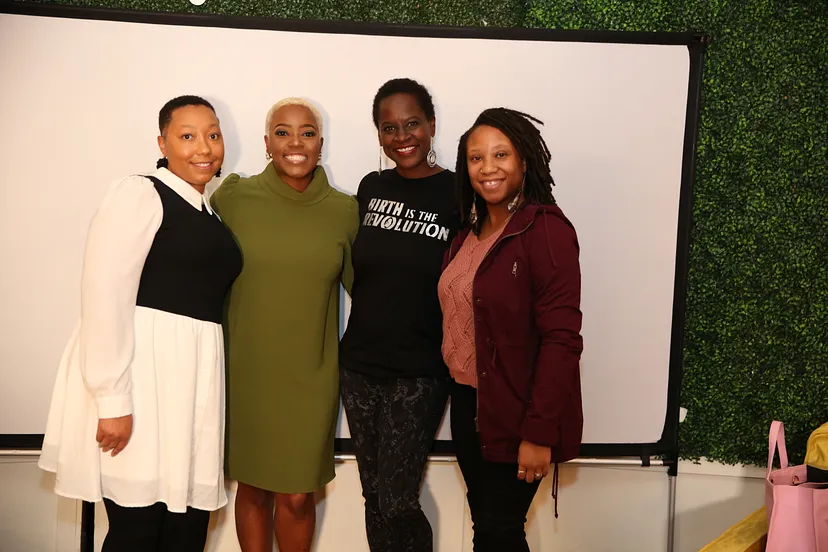
Image via SistaMidwife Productions
Nicole Deggins, SistaMidwife Productions: I started Sista Midwife Productions in 2011. This notion of doulas and birth advocacy was brand new at that time. There were not a lot of players on the field; I was one of only a few.
Initially, I started my business as a B2C. I just wanted to be a virtual midwife, a virtual doula for moms and families to help them navigate the system. As I began to do free training calls and was beginning to launch into paid training calls, I started realizing that most of the people who joined my calls were not pregnant moms but instead were childbirth educators — so lactation consultants or people who were new doulas, and who wanted to get the information that I was sharing. That was one clue and piece for me: “Hey, the market is asking for something different.”
Secondly, I was based in New Orleans and had community meetings asking people what they needed and how we could improve birthing outcomes, specifically across Louisiana. One of the things that came up repeatedly was that we needed to educate the community about the value of doulas. When I sat with that concept, it sounded good. But the problem was that we didn’t have a lot of doulas. It’s one thing to tell somebody to eat healthy, but there’s no healthy food, right? Similarly, you can’t get a doula when there are no doulas. So, I was called by my community. They told me, “You have this experience. You can do it. Train us. We want to be doulas.” That’s how I did my first training here in New Orleans. From there, it just began to grow organically. I’ve trained nearly 600 women nationwide and in several international locations.
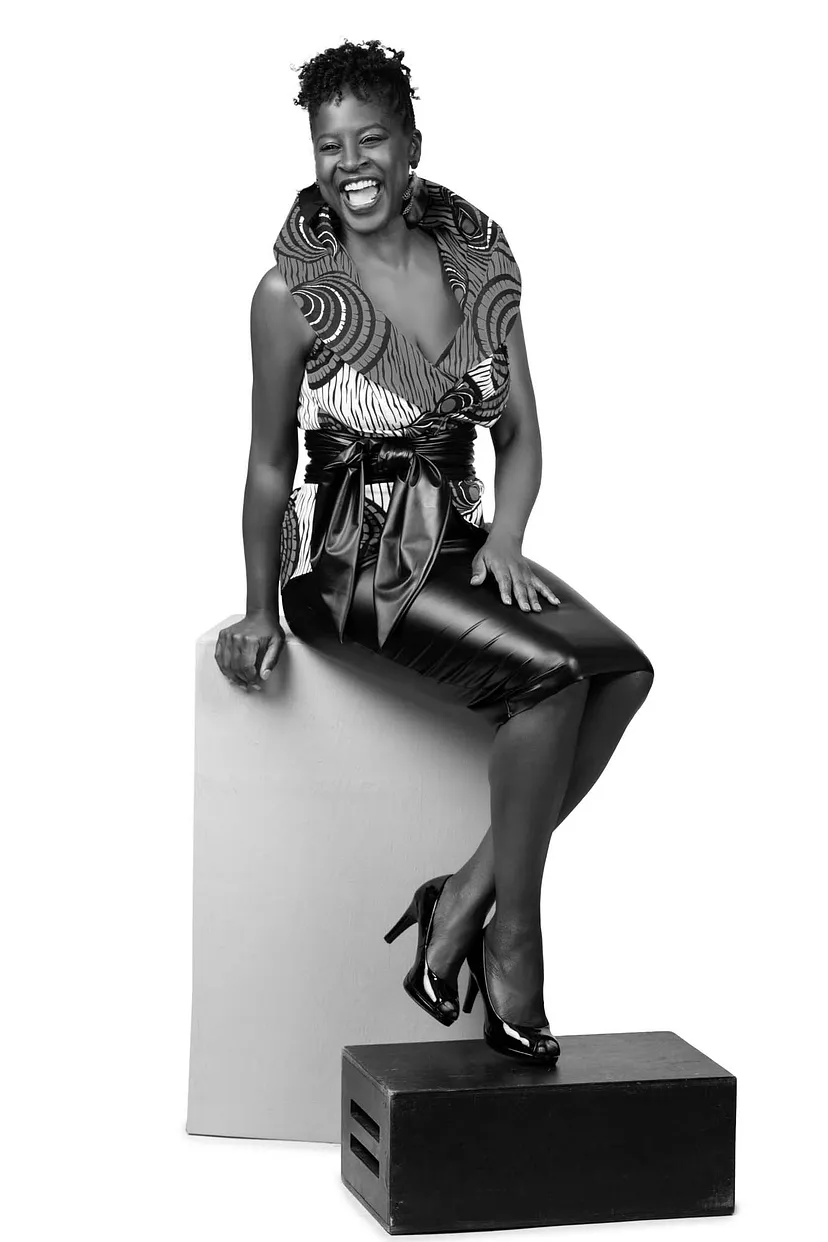
Image via SistaMidwife Productions
digitalundivided: What makes your services unique, and how are you training these doulas?
Nicole Deggins, SistaMidwife Productions: I bring a very spiritual lens. We have many conversations around rituals, spirituality, and the metaphysics of childbirth. In some doula training, that’s not a focus. A lot of doula training is just focused on the nuts and bolts. But for me, we need to dig deeper and understand the physical, spiritual, and metaphysical aspects of birth because in understanding that, we can go deeper and help transform families differently.
In African spirituality, we understand that we bring back our ancestors when we have babies. People always say, “Oh, that baby’s been here before.” We say that very casually and loosely, but we don’t realize that, yes, maybe this baby has been here before. Maybe this baby is coming with some information — here to teach us lessons and help transform our community in a new and beautiful way. We know that our babies come here not entirely as a clean slate. They come here with a mission. Everybody who was born is here for a purpose. If we understand how difficult it is for a baby to be born, their specific existence is miraculous. From the millions and millions of sperm and the hundreds of thousands of eggs available, it’s this one sperm and this one egg that unite to bring forth this person. Then you have to go through the doubling, tripling, and quadrupling over and over and over all these cells. Then, to go from the sperm and the egg to a human, it is miraculous. It is so miraculous that even if you read medical textbooks, they can tell you some things about the physiological mechanics of how this thing happens. But they still cannot tell you how and why it’s happening because it’s not a man-made thing. Birth, pregnancy, and life, just like death — it’s a God thing. It’s a spirit thing. It’s a Universal Intelligence thing. When we separate birth from this universal God, spirit intelligence, we miss out on many things.
digitalundivided: Last question, you were part of digitalundivided’s Breakthrough NOLA cohort. What was that experience like?
Nicole Deggins, SistaMidwife Productions: For me, as a healer, as someone who’s in a helping and healing profession, often, we need more pieces to help grow a business and to understand those business pieces. So one of the things that benefited me as a part of the Breakthrough cohort was learning to recraft how I presented myself and who I said we were as an organization. And so, at one point, I used to describe Sista Midwife Productions as a birth justice organization or birth advocacy organization. What I began to learn from speaking this repeatedly during the Breakthrough training was that I didn’t tell the story of what we were and who we were, and what we did. Now I can articulate that we are a birth advocacy training and consulting agency. Switching that narrative and language also shifts how we can show up in meetings and present what we offer to organizations, communities, and institutions.
Are you a Miami-based, early-stage founder looking to understand your customer better, grow marketing strategies, and gain networking opportunities to scale your venture? Apply to digitalundivided’s BREAKTHROUGH Miami program today! Each company accepted into the program will receive a $5,000 grant — applications close August 23rd, 2023.
[Editors note]: This interview has been lightly edited from its original transcription.

